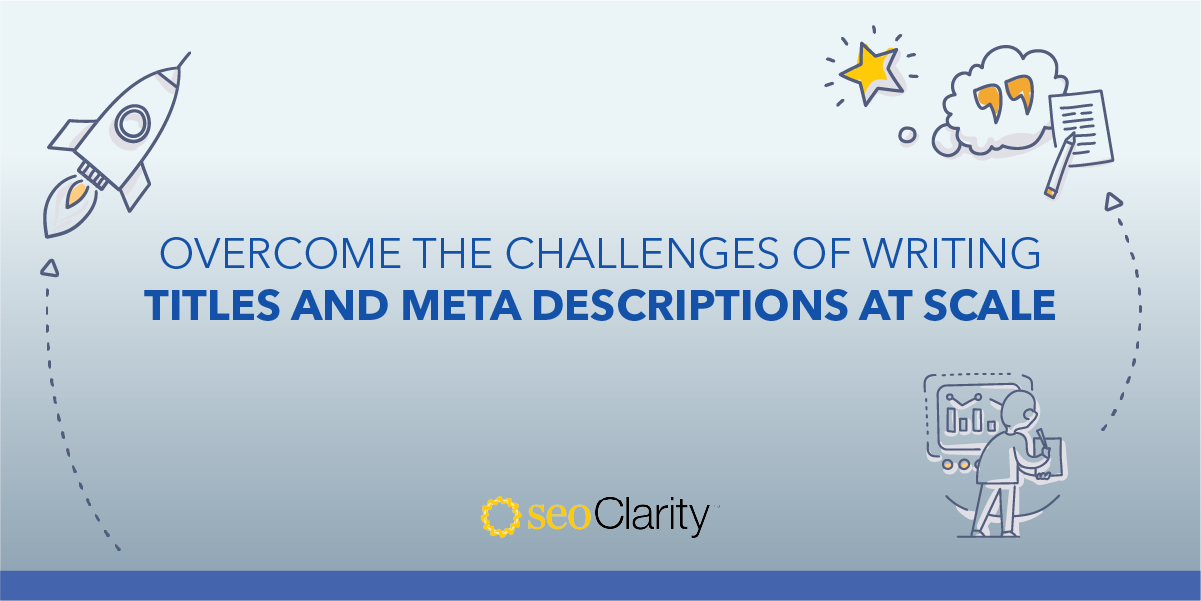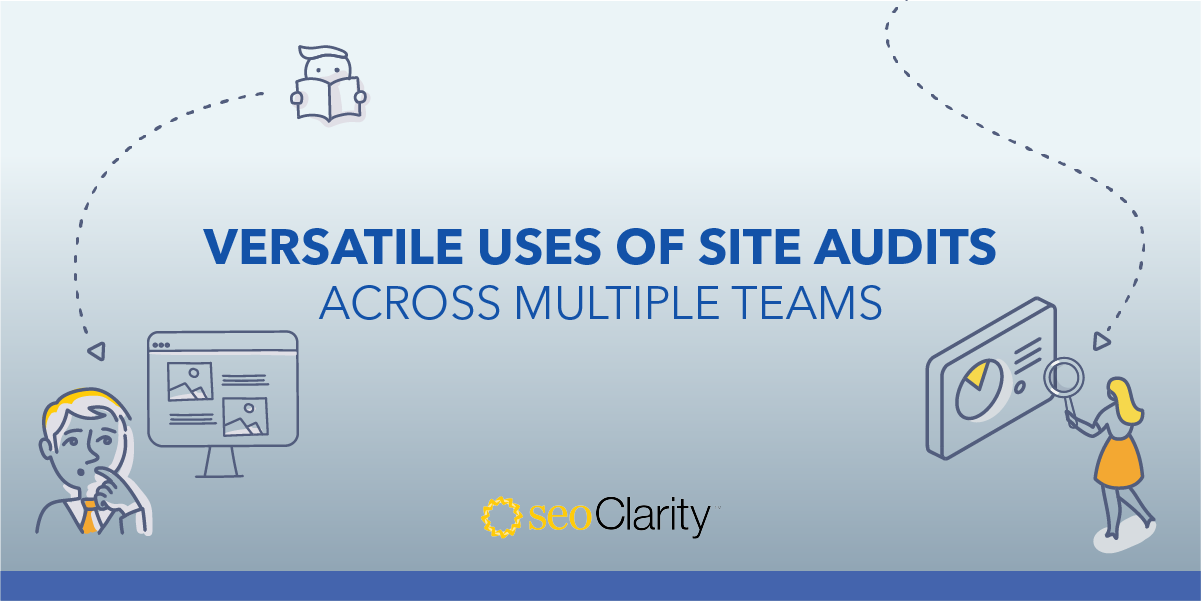Before you meet with a salesperson, you may be wondering, “How much does SEO software cost? or "Does my budget fit what an all-in-one SEO platform costs?”
We know how it goes - no one really talks about this until after you commit to see a demo or get an official proposal. But these answers play a vital role in assessing whether the software aligns with your needs, your current stage in your SEO journey, and if it makes sense for your budget.
Below, we'll attempt to wipe away this ambiguity by discussing the typical cost of an SEO software, what's included, frequent hidden fees, and other common cost-related questions.
Table of Contents
-
Why Aren’t Month-to-Month Agreements Typical with an SEO Platform?
-
The Cost of an SEO Platform Compared to Specific Rank Tracking SEO Tools
For a full breakdown of how much search engine optimization costs, check out our comprehensive guide.
Factors that Impact the Cost of an SEO Tool or Platform
It is hard to give a one-size fits all answer to the question, “What does SEO software cost?”, because the fact of the matter is, well - it depends.
Like most enterprise marketing software (martech), there are many different SEO pricing models based on the capabilities and data you need from an enterprise SEO software.
In addition to the different packages listed below, it’s critical to first understand the quality, reliability, innovation, and (maybe most importantly) the scalability an SEO software offers.
All of these components will ensure your software purchase results in a positive return on investment and what you really want - organic search traffic (and conversions!).
The variance of cost comes from a few different areas:
- Quantity of keywords and domains tracked (including competitors!).
- Frequency of updated keyword ranking data (typically weekly or daily updates).
- Exclusive features and capabilities within the platform.
- Proactive support and quality training.
- Professional SEO services for strategy and/or ad-hoc special projects.
The Typical Cost of an Enterprise SEO Platform
In general, SEO software costs would depend on what features and capabilities are included.
Specifically, an SEO platform should include all SEO capabilities within search engine optimization. Our approach is unique in that it focuses on optimizing the user search EXPERIENCE and includes:
- Usability: technical site health
- Relevance: content marketing
- Authority: link building
It should also include all SEO metrics and data you need to successfully scale your SEO and drive consistent results (with a few caveats, exceptions, and watch-outs as you read through to the end of this post).
But you can expect an enterprise platform to vary in cost depending on the SEO package, but costs range between $2,500-$3,500 per month. On the top end the investment, based on the number of domains and keywords you need to track, the pricing can be up to $10,000 per month.
Why do enterprise-level platforms cost more than basic or specialized SEO tools? There’s more on this below, but the important thing to understand is the time, development, and constant shift in Google’s search engine results pages (SERPs).
The accuracy in your ranking data is critical to get the insights to understand your organic performance. This data helps the technology surface the insights so you can make the next right decisions on what optimizations to prioritize.
Using an enterprise SEO software can increase efficiency and productivity while reducing the time and errors involved in managing organic search campaigns.
Recommended Reading: How to Make the Case for an SEO Platform to Your Executive Team
More specifically, automating SEO through a toolset or platform can provide the following benefits: Many tools, one user interface; more efficient management of global operations; ability to stay up to date with the changes happening with the search engines; and automated reporting to provide data in near real time.
Want to know more about why SEO platforms cost more? Skip ahead to: Why Aren’t Month-to-Month Agreements Typical with an SEO Platform?
What Capabilities Do I Really Need in an SEO Platform?
There are a few questions that you can answer to understand what package level you need with an SEO software. Here’s a quick list that you can consider:
- Weekly vs. Daily Ranking Data. This is a big one, how frequently do you need to track ranking changes for your site. If you are in a super competitive industry and the search results are consistently changing, daily is probably required. If you can wait two to three weeks to see if those ranking fluctuations were a fluke or if there is an issue, weekly ranking updates will probably work.
- How many keywords should you be tracking? We recommend that you should track about 15% of the total keywords you rank for. Here’s a quick SEO workflow and methodology for building your targeted keyword portfolio.
- How many domains do you have and what countries do you cover? If you have a global team with multiple different international sites, you’ll need to determine what domains and keywords you need for each.
- Does hyper-local and geographic ranking matter to your business? This affects the number of rank checks you need based on the hyper-local ranking data and visibility you are trying to improve. This is usually really important for brick and mortar and brands with a lot of locations and foot-traffic.
- What does your team look like, and who will be using the platform? It's important to consider the number of users who will be utilizing it. Look for a platform that offers unlimited team usage and the ability to segment access to specific capabilities based on users' roles. This is especially crucial if multiple teams, such as IT, content marketing, and digital marketing, will be leveraging the technology. Ensure that the platform includes all necessary capabilities to meet the unique needs of each team.
- What resources or extra SEO support do you need outside of the software? This is a hard question to answer upfront, but it's important to make sure that on boarding, training, support, and SEO consultant and/or SEO services are available. We get that SEO teams are usually under resourced so having a go-to resource in a Client Success manager is critical. At seoClarity, a dedicated Client Success manager is included as well as Professional SEO Services. Consider what other ad-hoc projects like SEO audits or content audits, ad-hoc projects, or SEO strategy and roadmaps could benefit your team. Make sure there is an option to add-on or note if it's included to have an SEO consultant, or SEO Professional Services, available to advance your SEO.
SEO Package Prices
| Domains / Tracked Keywords | Monthly Investment | Usually an Extra Cost |
| 1 Domain, 2,000-3,000 Keywords | $2,500 - $3,500 |
- Content writer / editor tool |
| 2-5 domains, ~5,000 keywords | $3,750 - $6,000 |
- Content editor tool, sometimes |
| Multiple (or unlimited) domains, More than 5,000 keywords | $8,000 and up | - Not an extra cost, but check that you’ll have executive support and influence on the development roadmap |
For an overview look at the cost of SEO outside of just SEO software, refer to this list of SEO pricing.
Here is a quick list of must-have SEO capabilities you should expect to be included in all-in-one SEO software:
- Quality rank tracking data
- The ability to analyze and surface insights
- Keyword research suite
- Site audit technology and crawler,
- Content creation and optimization,
- PPC / Google AdWords integration,
- Backlinks/link building, and internal link analysis,
- Customizable reporting and dashboards, and
- Site analytics integration, like Google Analytics or Adobe Analytics
Looking for all costs associated to SEO, not just software or tools? We created this SEO Pricing Guide that includes costs for everything in SEO.
What’s Cost Difference of an SEO Platform for SEO Agencies?
Again, the answer is … it depends!
SEO agencies have a different challenge as they are working for multiple clients and usually need more domains and less keywords tracked per domain.
Usually packages are set-up differently for SEO agencies, but you can still expect the SEO pricing options to fall in the same range as what I outlined above. They are structured to include more domains, however, and maybe even a revenue share if any clients move to their own access and contract with the software directly.
Still, the same inclusions or exclusions of the features and capabilities apply.
One of the main watch-outs for SEO agencies: make sure you can customize dashboards, have endless reporting, and automate this EASILY.
The biggest success with SEO agencies using a platform is the time they save and increased productivity. They have to constantly report and update their clients. Spreadsheets and manual reporting doesn’t cut it when you want to grow your client base. Use your SEO talent for what you hired them for - SEO - not tedious data collection and being an Excel jockey.
Why Aren’t Month-to-Month Agreements Typical with an SEO Platform?
A lot of the investment from the provider is upfront - the onboarding, training, and the time Client Success teams put into the relationship to ensure adoption of the platform throughout your organization, and within the SEO and content marketing teams. Most SEO tools are software only, it’s all online, figure-it-out-yourself training, with some online call-center type support.
Or with other martech providers, oftentimes there is an initial onboarding fee SEO companies must pay. This is often referred to as a set-up fee or integration charge, that can range from $2,000 - $10,000 and is usually structured as a time-bound project with tasks for both the purchaser and the SaaS provider.
The longer-term agreements also give your SEO software provider the ability to invest in continued innovation and add more features and functionality to the platform. seoClarity is especially proud of this, if two clients request it, we build it. Updates to the SEO software should be extremely important to you as an SEO team. If a platform isn’t consistently providing updates and introducing new features, there is an issue.
Digital marketing, and search marketing in particular, moves quickly. User behavior, Google’s constant updates to algorithms, and the ever-evolving SERP with varying search results are constantly changing. In fact, in 2018, Google reported more than 3,000 updates alone in a single year. You really are investing in a technology that keeps up with that pace of change.
Finally, the largest SEO costs lie in the data collection, warehousing/storage, and building an infrastructure that can deliver not only the massive amounts of data, but also the machine learning to drive the insights to you as fast as you can think about it.
Common Hidden Costs in SEO Software Packages
Everything you see in a demo or read on the site may not be included in the proposal or the package that’s presented to you, so it’s really important to make sure you understand what’s NOT included so there are no surprises later.
The other “catch”: make sure you understand how many keywords are included in your price during the proposal stage. There are a few different ways SEO technology providers charge for ranking data, and it can be confusing.
You should be able to clearly see outlined in the proposal:
- Number of tracked keywords
- This doesn’t (always) equal the number of rank checks you need.
- Make sure you understand the number of search queries that are included, sometimes referred to as a "rank check"
- Number of search engines AND if it includes both desktop and mobile
- If you require both rank tracking for desktop and mobile, make sure each search engine is included and they are clearly listed in your proposal.
- The combination you are looking for is both the number of keywords and the search engines they will be rank checked on. Google Desktop US and Google Mobile US is an example.
- Descriptions of the features that are critical to your success and that you expect are included.
You don’t want to end up adding keywords or more rank checks you weren’t expecting from the beginning after you have already signed the agreement. Nor do you want to add-on SEO tool for a feature you didn’t receive. This results in further investment and the loss of scalability within your SEO program.
The Cost of an SEO Platform Compared to Specific Rank Tracking SEO Tools
The biggest difference here is scale and the time savings you get from having all of the data, site analytics, reporting, and capabilities for your entire SEO strategy in one place. Using different tools requires more training, downloading data, uploading the data to a BI tool and the ability to connect all those data points.
Collecting ranking data is the easy part, but it’s the quality, freshness, reliability, and how frequently the technology executes rank tracking that requires sophistication and experience to scale.
Recommended Reading: Why Choose an SEO Platform Over a Specialized SEO Tool Like Semrush?
We actually wrote a whole post on what to look for and questions to ask when buying a keyword ranking and keyword research tool.
The bottom line is this: an SEO tool compared to an SEO platform is very different, not only in what you get, but also in the functionality and capabilities to gather insights and create actionable next steps from that ranking data. Rank tracking in itself is a good first step, but the ability to dive into the data and analyze it to understand specific next steps from it is the next challenge.
You can find keyword research or even keyword ranking tools in the marketplace that charge as little as $99 a month! We think this is a great place to start for small business or companies that don’t have a budget for SEO or lack the team to implement an SEO roadmap and tactics. We would recommend Moz for smaller keyword rank checks, or Authority Labs for one-time or infrequent rank checking.
These “get started” tools are great for reporting (most of the time!) and simply beginning the process for awareness of your search visibility.
Educate yourself on all the costs associated with organic search, from SEO agencies to consults, internal resources, tools, and more with our SEO Pricing Guide.
<<This post was originally published in September 2019 and has been updated.>>









1 Comment
Click here to read/write comments